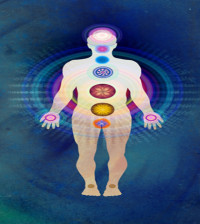- 5 Tips To Finding Peace Within Yourself
- The Do’s and Don’ts of Learning How to Accept Yourself
- How to Find Your Inner Peace and Transform Your Life
- 8 Benefits of Having an Open Mind and How to Get One
- Learn How To Be A Happier Person
- What Is The Meaning Of Life?
- Laws of Abundance – The Riches of Love and Joy
- How to Be Laid Back By Following These 9 Simple Strategies
- The meaning of confucius’ golden rule – 4 practical ways of living it
- 3 methods of unleashing the power of contentment in your life
5 Strategies to Stop Feeling Blue

Most people have experienced a feeling of sadness coupled with lethargy. Some people, in fact, are more prone to “feeling blue” than others. The trouble with even the mildest case of the blues is that it could become so much more. Your sleeping patterns get disrupted; this makes you even more tired, irritable and frustrated. It becomes harder to attempt tasks that you would normally accomplish with very little effort. You lose interest in hobbies and interests that you once found gratifying. Malaise sets in and you experience a lack of motivation and extreme indecision, seemingly unable to do anything about your current situation. But contrary to this nagging sense of impotence, ridding yourself of the blues can be done – difficult, but not impossible. You just have to start with these simple strategies:
1. Associate with positive people. If you’re feeling a little blue, don’t withdraw from society. Maybe you think that you’ll be a party-pooper. However, being around people will keep you from brooding on your troubles; you may even find out that you can still enjoy the company of others despite your mild depression. Do things that you like (or used to like) with other people who enjoy them too. Better yet, spend time with people who have a positive attitude towards life. Try to see how they deal with challenges. Mimic this behavior. You may discover a different and more proactive way of coping.
2. Confide in someone you trust. Withdrawal can also be mental and emotional distance, and not just closeting yourself in your room, away from social interaction. If you’re the type to keep things close to your chest, perhaps you can try opening up a little to people you trust. Isolating yourself from friends and family will not help. These people are your support group. Trust them to help you during this trying time. Talk over your concerns with at least one person. Share what you feel, get advice on how to cope, ask for encouragement. Sometimes the very act of talking it over will help ease your feelings of sadness.
3. Eat, sleep, and exercise. Do not slip into a decline. Now is not the time to skip meals or lose sleep or give up on exercise. Eat healthy and at the right times (if your body clock needs resetting, stick to a routine). It is said that those suffering from depression lack omega 3 fatty acids; taking foods rich in omega-3 fatty acids, such as salmon or tuna, may be helpful. Avoid caffeine and nicotine. Make sure to get eight hours of sleep each day. Exercise at least 20 minutes a day. Exercise is a proven “antidepressant” because it has the ability to lift one’s mood and provide the hormonal balance to keep your physical and mental faculties in working order. You don’t need to go to the gym; go running, or walk the dog, or take the stairs more often. This will help.
4. Take pleasure in the little things. Natural mood-lifters are all around us, and they’re free. Sunlight, because it stimulates our body’s natural rhythms and hormonal responses, is beneficial to combat depression; 15-30 minutes in the sun early in the morning is enough to give you a sense of well-being. Pet therapy, or having an animal companion to care for, is also good. Your pet will be a source of comfort and will also force you to be active. Music therapy is also used to cure short-term depression; you can listen to music that you enjoy or that makes you feel good. You may even learn to play an instrument, if you haven’t already.
5. Meditate. A mild case of the blues can spiral into full-blown depression, usually with the depressed person sinking more and more into gloomy thoughts. The disciplined practice of meditation can improve your mood at any point. In fact, it is believed that meditation is just as effective as medication in helping stop the blues. Meditation makes you aware of the counterproductive and hypercritical thoughts that worsen depression; it teaches you that you can be mindful of these concerns, but still stay detached. You can also learn to control your own thoughts and emotions towards a more positive outcome.








































You must be logged in to post a comment Login